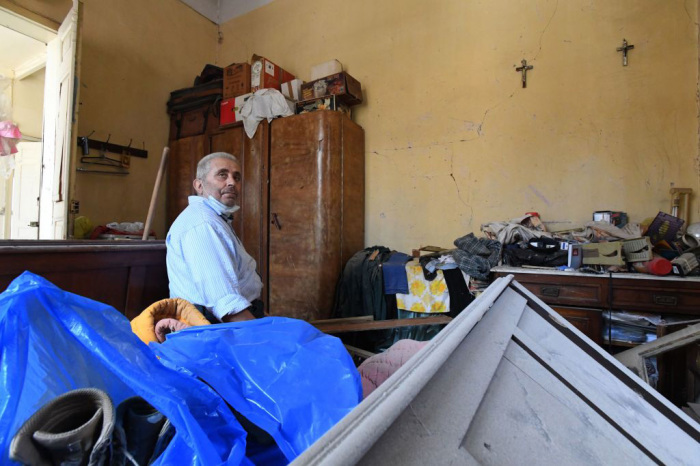Lebanon's prime minister resigns amid protests after deadly Beirut explosion

Lebanese Prime Minister Hassan Diab announced his government's resignation Monday following last week's massive explosion in Beirut that killed at least 163 people and resulted in over 6,000 injuries.
“I declare today the resignation of this government,” said Diab, who cited “huge corruption” as a problem at a press conference amid large-scale public protests in response to the explosion, ABC News reported. “May Allah protect Lebanon.”
Diab tendered his resignation to Lebanese Christian President Michel Aoun who will remain in his office for the time being in what ABC News dubbed a “caretaker capacity.”
The resignation decision came after days of protests against the regime, with protesters arguing that the government was guilty of negligent handling of the explosives that triggered the blast.
Last Tuesday, an explosion caused by an estimated 2,750 tons of ammonium nitrate, used in fertilizers and bombs, occurred at a warehouse in a port in Beirut, a major metropolitan city in the country of 6 million people, many from Muslims Christian faiths.
The exact cause of the explosion remains unknown. However, soon after the blast, the government put several port officials under house arrest as part of its investigation.
French President Emmanuel Macron visited the country once controlled by France on Thursday, expressing solidarity with the victims of the explosion.
During his visit to one damaged neighborhood, Macron was met with a large crowd demanding government reforms and an end to the current Lebanese regime.
As he walked the streets of the hardest-hit neighborhoods, Christians shouted: "Mr. Macron, free us from Hezbollah," The Epoch Times reported, adding that they were referring to the Iran-backed Shi'ite Muslim terrorist organization.
“They feel that international money [for recovery] should not be going to this government,” France 24 reported days before the resignation was announced.
“Many people who have been protesting for the last nine months, they say that this government will not spend it on the things that people actually need.”
Cardinal Bechara Boutros Rai, Maronite Patriarch of Antioch, whose denomination has a strong presence in the country, called the devastation of the explosion “a war scene without war.”
“Beirut is a devastated city. A catastrophe struck there because of the mysterious explosion which occurred in its port,” said the cardinal, as reported by the Catholic Telegraph.
“The Church, which has set up a relief network throughout Lebanese territory, today finds itself faced with a new great duty which it is unable to assume on its own.”





























